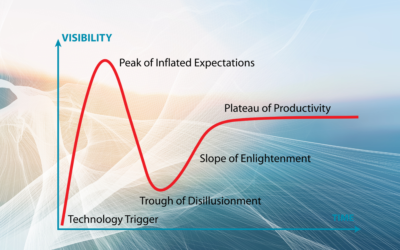It’s no secret that Microsoft 365 licensing can be confusing. In this blog we’ll take a deeper look at the Business and Enterprise licensing options so you can gain some understanding and decide what option might be the best fit for your organisation.
Microsoft 365 is popular with many organisations globally, known mostly through platforms such as Teams and Office, but also for its suite of security and compliance tools.
Microsoft split their business customers into two core groups:
Business – organisations requiring less than 300 licences.
Enterprise – larger organisations or those below 300 users base that need the highest levels of functionality and security Microsoft offer.
Please note that Microsoft 365 and Office 365 are different. Microsoft 365 licences are for a suite of products that include a business specific Windows licence for the PC/laptop, device management and security software plus the full suite of Office 365 applications.
Microsoft 365 Business Standard and Premium
These are Microsoft’s core licences for smaller organisations, with feature sets tuned to their requirements. Key differences between Business and Enterprise licences are that Business licences do not include Windows, apart from Premium which include Windows 11 Business, which is functionally comparable to Windows 11 Professional, not Enterprise.
Business Standard does not include a Windows licence or any Defender security or device management capabilities, you will need to use the Windows licence that came with the device and all security capabilities, including device anti-virus, will need to be licensed separately or will need to be provided through third party products. Business Standard licences can also not be deployed through Azure Virtual Desktop or any other VDI service.
Our recommendation for most qualifying organisations is to deploy Business Premium which is similar to M365 Enterprise E3.
Microsoft 365 E3 and E5
For Enterprise users, Microsoft 365 E3 and E5 provide a comprehensive set of features more suited for enterprise-level organisations. The set of tools is designed to meet the needs of larger businesses that require the most up-to-date and advanced tools to stay productive in their roles and protected against cyberthreats.
Microsoft 365 E3: This licence includes all Office 365 apps on web and desktop, including the full suite of Word, Excel, PowerPoint and Outlook. It also includes other tools to install locally, plus Exchange Online, Sharepoint, OneDrive and Teams.
As well as this, E3 includes Defender for Endpoint security analytics and antivirus capabilities as well as some advanced data loss and information protection tools. Additionally, you’ll find Windows Enterprise, Intune, Windows Autopilot, Azure AD Premium Plan 1 and Microsoft Endpoint Configuration Manager are included in the bundle.
Microsoft 365 E5: This includes everything in the Microsoft 365 E3 plan as well as Teams audio calls and telephone system, Power BI Pro, MS Defender for Identity and Office 365, Azure AD P2 allowing Risk Based Conditional Access and Privileged Identity Management, Microsoft 365 and Azure Advanced Threat Protection, Purview Information Protection, Cloud App Security, enhanced eDiscovery and more.
Both plans include security and compliance capabilities, however the Microsoft 365 E5 upgrade adds a lot of value to these areas.
For a more cost-effective solution, depending on your needs, Microsoft also offers the E5 Security and Compliance add-ons, which are separate licences to add to E3.
This might be a better option if you want some of the features within the E5 package but not necessarily all of them, such as the additional telephone and meeting capability and Power BI analytics.
We go into this in more detail in our add-on blog here.
Microsoft Frontline Worker Licences – what are they and who needs them?
Now we’ve covered E3 and E5, we’ll introduce you to Microsoft’s Frontline Worker Licences – F1, F3 and F5.
Microsoft list the varied user types across industries, including retail, manufacturing and hospitality:
- Information workers, who are most likely to use desktop or laptop computers and work more on administrative tasks and documents rather than liaising directly with customers, such as headquarters staff.
- Frontline workers, who primarily do their work on phones or tablets in customer-facing roles. They provide services, support and sell products or might be involved in manufacturing and distribution. Microsoft lists retail associates, healthcare clinicians and nursing staff as some examples.
A Microsoft Frontline Worker licence can be a cost-effective solution to connect workers with purpose-built tools, rather than having a full suite of client software, as they might not necessarily need all the tools that a knowledge worker will need.
This enables teams to communicate more effectively, bring manual processes digital, streamline the onboarding process and utilise the robust security features within M365 to secure the organisation’s data.
Microsoft F3 v Microsoft E3
As we’ve discussed above, F3 is designed for frontline workers who need access to core Microsoft applications, including email, calendar and file storage. Whereas E3 is tailored towards knowledge workers with a wider range of access to the Microsoft suite.
Microsoft F3 is especially great for bringing organisation to everyday roles and responsibilities, automating daily operations using PowerApps and Flow, as well as the ability to remotely control shared Windows devices.
It also offers access to advanced features such as Windows Defender Antivirus, Windows Autopilot, Windows Information Protection, Bitlocker, Microsoft PowerApps and Microsoft Sway.
Microsoft E3 offers more advanced features for enterprises such as data loss prevention and enhanced security. It is largely focused on safeguarding the company’s security and protecting sensitive data.
Microsoft E3 provides desktop versions of Office apps, while F3 is used on web and mobile versions.
For a more detailed overview of the licensing types, download this free guide here.
Unsure where to start?
Our team of Microsoft specialists can help. We have various managed services which can help you to manage your E3 or E5 subscriptions as well as offer support with Frontline Worker licencing. Simply get in touch with us below for a chat about how we can help.



